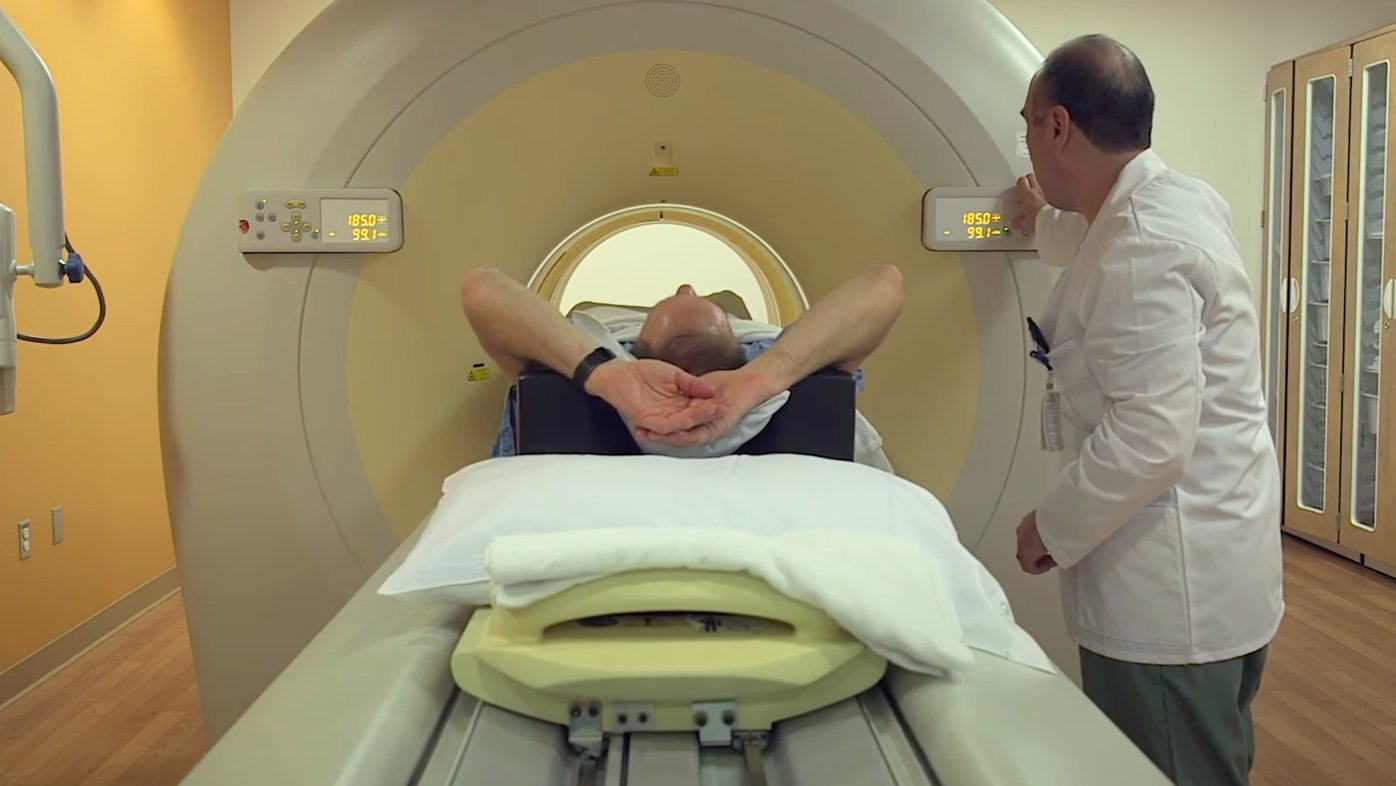
Finding lung cancer when it’s most treatable
Low-radiation CT scans can find tumors the size of a grain of rice.
Many doctors, nurses and other medical staff are drawn to the field of medicine because they embrace a strong desire to care for others. They have a natural instinct to put the needs of others before themselves.
They serve our community by working long hours, sometimes sacrificing their own health and safety, and give up spending time with their own families so they can help their patients. But health care is a high-stakes environment, and members of medical teams aren’t invincible — they’re human. When adverse events or unexpected outcomes occur, health care workers often struggle with the circumstances.
When things don’t go right
Challenging or unexpected medical events can have long-term psychological or physical implications. Sharp’s CAREforYou program is designed to lend a listening ear and helping hand to employees who are affected by these events.
An event can be a mistake that results in harm or complications; “first” experiences such as a first patient death; or a code blue. It can also be a workplace injury or violence that may cause uncertainty and distress to those involved.
Bernadette Carrasco, an administrative assistant at Sharp Grossmont Hospital, has been a peer supporter with CAREforYou for 6 years and took over the program in 2020 as chair. She recalls a situation that deeply affected her.
“Most births at the Women’s Center are joyous occasions and go as planned. But sometimes, it doesn’t happen as planned, and those are tough circumstances for everyone,” says Carrasco. “I remember the first code blue I witnessed, and nothing could have prepared me.”
Two lives at stake
A code blue is a medical emergency when a patient is in immediate danger, such as cardiac arrest. Hospital doctors, nurses and other staff members are trained to respond quickly, as every second counts.
“The situation involved a healthy, young mother who was experiencing seizures during labor caused by a rare condition,” she says. “It was serious. Her parents were here and begging us not to let their daughter die because they had just lost their son.”
Carrasco shares that it was a very intense experience, affecting everyone. "Faces changed, people were rushing around, and I didn’t know what to do," she says. "So, I bought a card from the coffee cart, the whole NICU staff signed it, and we gave it to the parents.”
Fortunately, the young mother recovered. And after some time in the NICU, the baby was fine too.
“Following events like these, there’s a debrief,” Carrasco says. "It’s very clinical. But there’s also an element of emotional first aid, and that’s where CAREforYou comes in."
‘Second victim’ syndrome
When health care workers are involved in unanticipated adverse events, many become traumatized themselves. It’s referred to as “second victim” syndrome.
The intent is not meant to minimize the significant impact on a patient or loved ones, who are of primary importance. Rather, it’s an acknowledgment that there’s also an impact on members of the health care team.
As a result, many health care workers struggle with symptoms such as:
Doubting one’s clinical skills
Blaming themselves and feeling like they have failed their patient or peers
Replaying the experience repeatedly
Experiencing sleep or eating disturbances
Having difficulty concentrating
CAREforYou peer supporters
CAREforYou peer supporters are trained to provide confidential support and a “safe zone” for affected team members to receive the help and empathy they need. Evidence confirms that what matters most is to be accepted by colleagues and seen as a valued member of the team.
“When bad outcomes happen to staff members, someone needs to be there to ask them, ‘Are you OK?’” says Carrasco. "That’s the most important question I ask."
She also rounds and checks in with her team members regularly. At Sharp Grossmont, there are about 30 peer supporters, including managers, who play a key role in helping identify staff in need.
Sharp HealthCare has over 400 peer supporters systemwide. Any staff member can volunteer. This fall, they are launching a Physician CAREforYou Program to further support well-being.
Making a difference
According to Carrasco’s supervisor, Dr. Gregory Apel, chief medical officer of Sharp Grossmont Hospital and the executive sponsor of the program, one of Carrasco's most impressive contributions at Sharp Grossmont has been her leadership of the CareForYOU Peer Support Program.
"For the past 6 years, she has served as the chair of this vital initiative, demonstrating her unwavering commitment to supporting the well-being of our employees and promoting a culture of equity, diversity and inclusion," Dr. Apel says. "Bernadette's passion for this work, combined with her exceptional interpersonal skills, has been instrumental in the program's success.”
Carrasco says just talking and helping staff see situations through a different lens and an empathetic eye helps immensely.
Get the latest health and wellness news, trends and patient stories from Sharp Health News and subscribe to our weekly newsletter by clicking the "Sign up" link below.

The Sharp Health News Team are content authors who write and produce stories about Sharp HealthCare and its hospitals, clinics, medical groups and health plan.

Bernadette Carrasco, an administrative assistant at Sharp Grossmont Hospital, has been a peer supporter with CAREforYou for 6 years and took over the program in 2020 as chair.

Our weekly email brings you the latest health tips, recipes and stories.